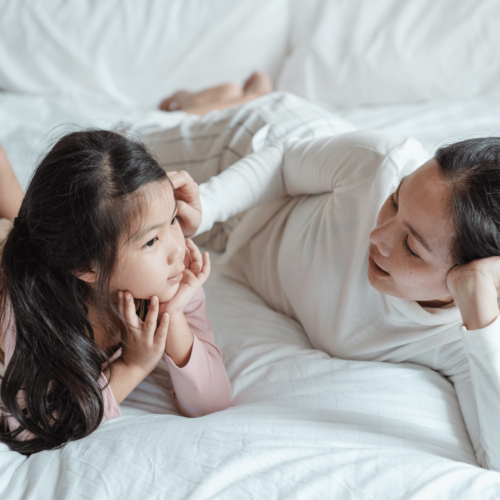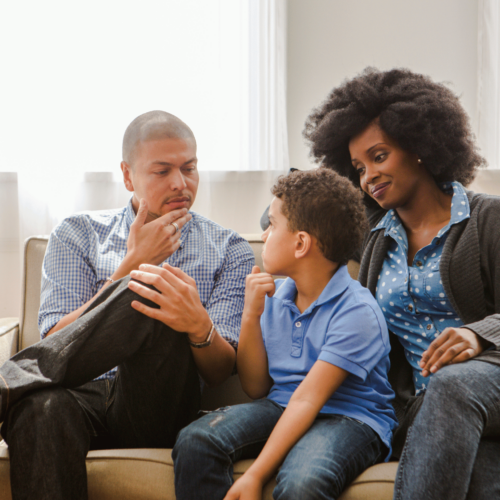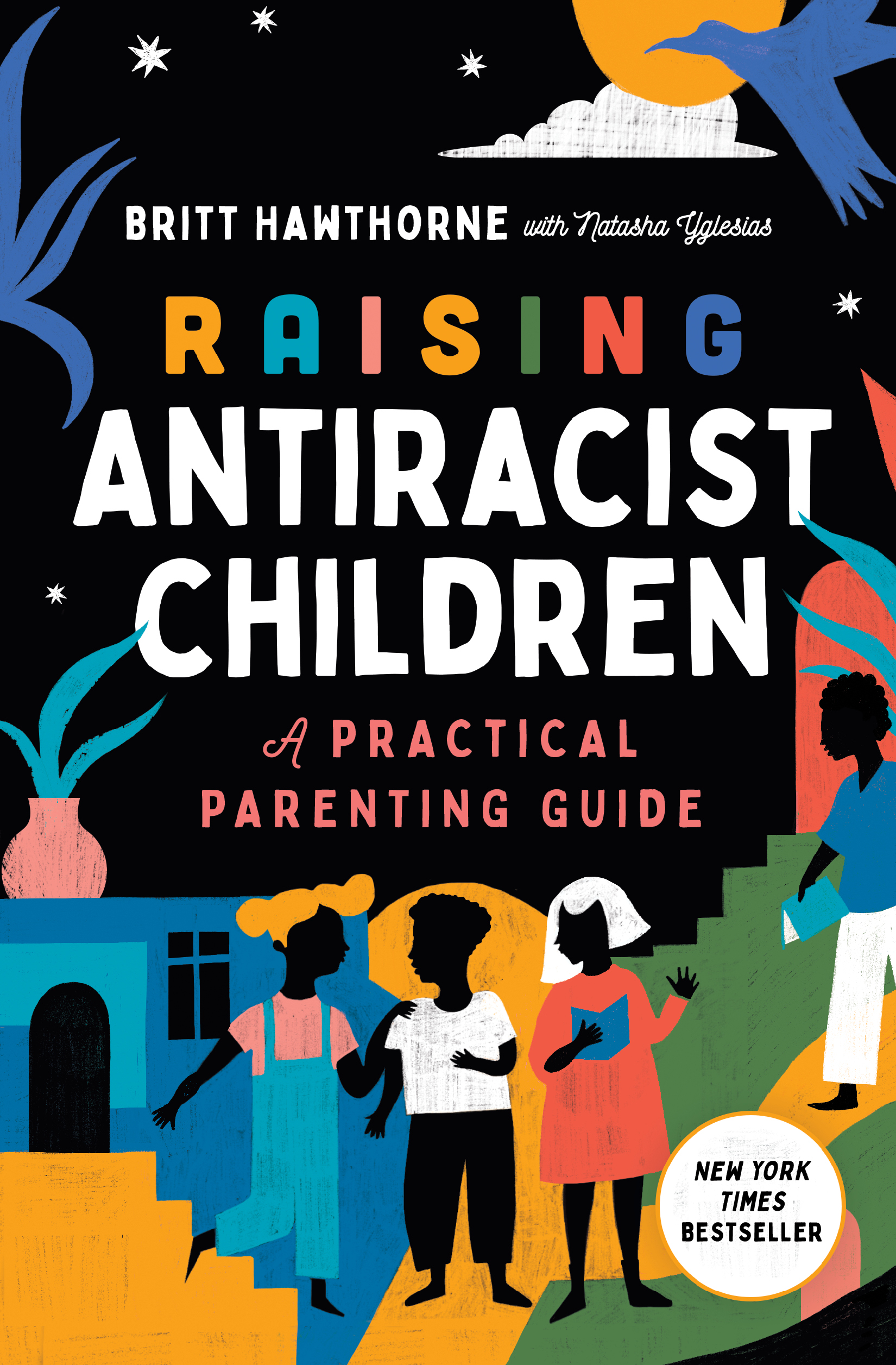In discussions about consent today, we’re moving beyond the binary of “Yes means yes” and “No means no.” Montessori director and toddler teacher Corey Jo Lloyd explains consent as “a constant conversation not just about who touches who—it’s ultimately about shared power.” For young children, this means they’re in control of their bodies; if they want to hug, receive a kiss, have their picture taken, or wear a costume, they can actively consent. Keep reading to access my recommendations for books about consent to begin or contribute to the sex education of your learners.
Disclaimer: Sex education and sexual health can be personal conversations that may bring up traumatic experiences and uncomfortable memories. If so, please take care of yourself as you engage with this blog post and recommended resources.
When Is The Right Time For a Comprehensive Sex Education?
When I say “comprehensive sex education,” I mean having conversations about mental health, emotional health, physical health, assigned sex, assertive communication, puberty, sex-based harm, gender identity, gender discrimination, nonsexual consent, sexual consent, boundaries, safer tattooing practices, sexually-transmitted infections, and sexuality.
Similar to discussing racism and drugs, it’s never too early or late to start talking about consent.
Expert after expert has shared that comprehensive sex education works best if it begins before the start of sexual activity. During this time, parents feel less pressure to “get it right” when they have the time and space to respond to questions, read books based on scientific explanations, and use hypothetical stories to role-play. Children feel more comfortable and open to learning about sex when they’re not experiencing the ups and downs of hormones.
For people not yet convinced, did you know the American Academy of Pediatrics (AAP) advocates for the widespread availability of comprehensive sex education?
They support ensuring that all children and adolescents receive age-appropriate, evidence-based education that equips them with the necessary knowledge to make well-informed, safe, and positive decisions regarding their sexuality and sexual well-being.
Becoming a Sex-Positive Family
When I say “sex positivity,” I’m referring to the view that the only relevant concerns regarding the sexual act, practice, or experience of sex are the consent, pleasure, and well-being of the people engaged in it or those affected by it.
Sex positivity places no moral value on different sexualities or sexual acts. It helps people set aside judgments and make room for the diversity of human sexuality.
In contrast, “sex negativity” is the normalized view that sex is harmful, shameful, disgusting, and or something to be feared. Sex negativity devalues sex and the experience a person has with sexuality. It promotes the belief that nonconforming sexual expression is not valuable and erases honest expression of sexualities and authentic connection between people.
Before beginning to teach your children about consent, it can help to define your family’s approach and stance on sex education. Start with yourself and your parenting partner(s) by challenging/unpacking any sex negativity that you hold within yourself.
To engage in meaningful and honest conversations with your child, approach conversations with curiosity rather than fear.
Consider these sex-positive family values:
- Your questions and observations are valid and worthy to be discussed
- Puberty and sex won’t be taboo conversations in our home
- I’m a trusted adult that won’t judge or shame you
- What you’re experiencing is perfectly normal
- We’re on the journey of learning together
- You won’t have to figure it out alone
Books About Consent For Children
As antiracists, we understand that sexuality (like race) is often a taboo topic in many homes. We also understand that sexual violence and discrimination (like racism) must be dismantled. I believe in helping families dismantle the taboo of sexuality and work to become sex-positive households. These recommendations for books about consent can help to accomplish this!
For Children
Including babies, toddlers, preschoolers, and elementary children.
1. What Makes a Baby by Cory Silverberg
This inclusive book provides a gentle and accessible introduction to the concept of reproduction for children, using inclusive language and illustrations to explain how babies are conceived and born.
2. Bodies Are Cool by Tyler Feder
Celebrating body diversity and promoting self-acceptance, this picture book encourages children to embrace and appreciate their bodies, fostering a positive body image and promoting inclusivity.
3. Yes! No!: A First Conversation about Consent by Megan Madison, Jessica Ralli, and Isabel Roxas
This book introduces the concept of consent to young children, teaching them about personal boundaries, body autonomy, and the importance of respecting others’ choices through simple and engaging illustrations and text.
For Tweens
4. Sex Is a Funny Word: A Book About Bodies, Feelings, and You by Cory Silverberg and Fiona Smyth
Designed for tweens, this informative and inclusive book explores topics related to bodies, gender, sexual orientation, and relationships, providing accurate information in a sensitive and age-appropriate manner.
5. It’s Perfectly Normal: Changing Bodies, Growing Up, Sex, Gender, and Sexual Health by Robie H. Harris and Michael Emberley
Aimed at tweens and older children, this comprehensive guide covers various aspects of sexuality, puberty, reproduction, and sexual health, providing clear and accurate information with vibrant illustrations.
6. Consent (for Kids!): Boundaries, Respect, and Being in Charge of You by Rachel Brian
Geared towards tweens and early teens, this book educates young readers about the importance of consent, personal boundaries, and respectful communication, empowering them to understand and assert their own choices.
For Teens
7. Let’s Talk About It: The Teen’s Guide to Sex, Relationships, and Being a Human by Erika Moen and Matthew Nolan
This frank and inclusive guide addresses various topics related to sex, relationships, consent, communication, and personal well-being, providing teens with a comprehensive resource for navigating these important aspects of their lives.
8. You Know, Sex: Bodies, Gender, Puberty, and Other Things by Cory Silverberg and Fiona Smyth
With a focus on gender, sexuality, puberty, and body positivity, this book for teens offers inclusive and engaging information about diverse experiences, identities, and relationships.
9. A Quick & Easy Guide to Consent by Isabella Rotman and Luke Howard
This accessible and informative guide provides clear explanations and practical examples to help readers understand the concept of consent, establish healthy boundaries, and navigate consent in various contexts, promoting respectful relationships.
For Young Adults and Beyond
10. Can We Talk About Consent?: A Book about Freedom, Choices, and Agreement
Aimed at young adults and beyond, this thought-provoking book explores the concept of consent in a broader societal context, highlighting the importance of freedom, choices, and mutual agreement in all aspects of life.
11. Raising Antiracist Children: A Practical Parenting Guide by Britt Hawthorne (That’s me!)
My parenting guide offers practical advice and strategies for parents and caregivers to actively raise children who are aware of and challenge racism, fostering inclusivity, empathy, and social justice from an early age. This includes creating a sex-positive family!
Celebrating Consent
Equipped with these books about consent, you’re on your way to building a sex-positive family and helping your children develop strong, healthy relationships with themselves and others. Congratulations!
As your children begin to uphold their boundaries, here are two phrases you can use to respond. These phrases come from Ashley Speed, a queer Montessori educator helping teachers and parents honor the fullness of children’s identity and expression:
- “Thank you for communicating your boundaries.”
- “Thank you for respecting your boundaries.”
I’m rooting for you!





